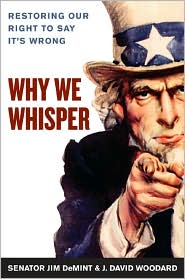by Dennis Prager
Next to the presidential election, California Proposition 8 is the most important vote in America.
It will determine the definition of marriage for the largest state in America, and it will determine whether judges or society will decide on social-moral issues.
In 2000, 61 percent of the voters in California, one the most liberal states in America, voted to retain the only definition of marriage civilization has ever had -- the union of a man and woman (the number of spouses allowed has changed over time but never the sexes of the spouses). But in May 2008, four out of seven California justices decided that they would use their power to make a new definition: Gender will now be irrelevant to marriage.
As a result of this judicial act, the only way to ensure that we continue to define marriage the way every religious and secular society in recorded history has defined marriage -- as between men and women -- is to amend the California Constitution. It is the only way to prevent the vote of one judge from redefining marriage, as was also done in Massachusetts and Connecticut.
Which is why Proposition 8 exists.
But even though California voters decided by a large margin to retain the man-woman definition of marriage, passing Proposition 8 will be a challenge.
First, the attorney general of California, Jerry Brown, unilaterally renamed the proposition as it appears on California ballots. It had been listed as "Amends the California Constitution to provide that only marriage between a man and a woman is valid or recognized in California." Brown, a liberal Democrat, changed the proposition's wording to: "Eliminates Right of Same-Sex Couples to Marry. Initiative Constitutional Amendment."
The reason for this change is obvious -- to make the proposition appear as a denial of a basic human and civil right.
Marriage has never been regarded as a universal human or civil right. Loving and living with anyone one wants to live with are basic human rights. But marriage is actually a privilege that society bestows on whom it chooses. And even those who believe that any two unmarried people who want to get married should be given a marriage license should regard as wrong an attorney general changing a ballot proposition's language to favor his own social views. What Brown did was attempt to manipulate people who lean toward preserving the definition of the most important social institution in society -- people who have no desire whatsoever to hurt gays -- to now think of themselves as bigots.
According to Sacramento Bee columnist Margaret A. Bengs, "a recent Field Poll analysis found" that the new wording by Brown "had a 'striking' impact on those newly familiar with the measure, with a 23-point swing against it."
What we have here is truly manipulative. Four justices create a right, and then a sympathetic attorney general renames a proposition so as to protect a 4-month-old right that no one had ever voted to create.
To read the rest click here
Subscribe to:
Post Comments (Atom)











No comments:
Post a Comment